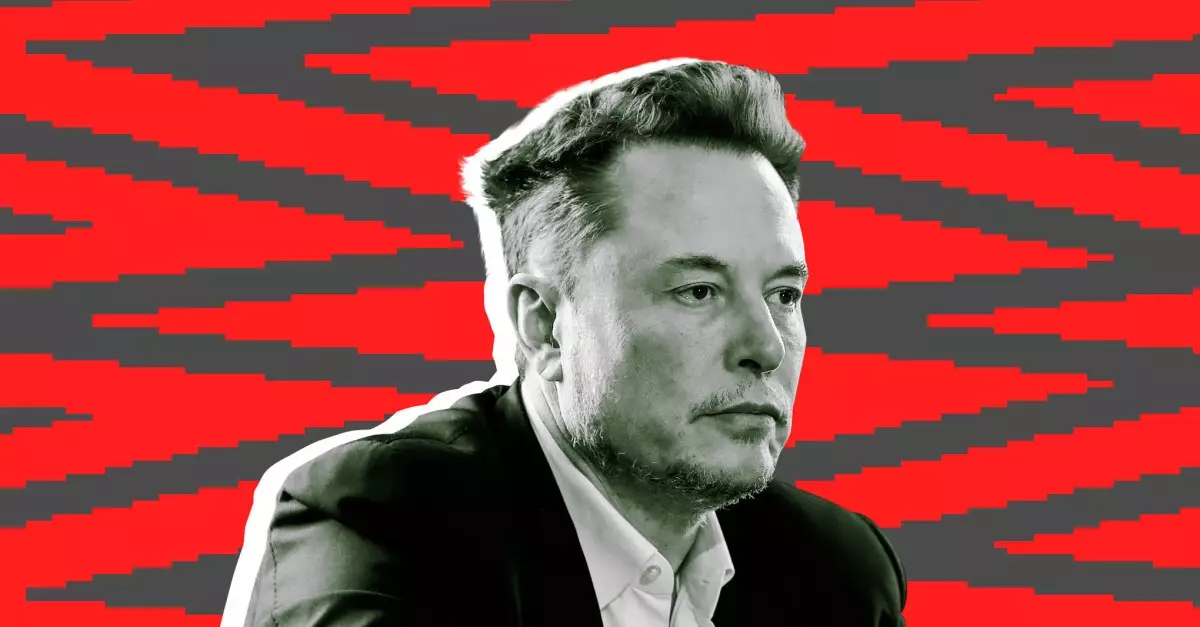In a corporate landscape often characterized by turmoil and rapid change, the recent controversy surrounding Tesla’s leadership and its CEO Elon Musk has sparked intense discussions and speculation. Following a report by The Wall Street Journal claiming the Tesla board was on the lookout for a new CEO to replace Musk, Robyn Denholm, the chair of Tesla’s board, vehemently denied these assertions. This incident not only exposes the fragile state of leadership at Tesla but also raises significant questions about the board’s unity and Musk’s overall effectiveness as the head of the company.
The Wall Street Journal’s article suggests that the Tesla board, amid declining sales and increasing scrutiny over Musk’s volatile behavior, began seeking candidates for Musk’s eventual successor as early as a month prior to the report. Such claims, if true, imply a lack of confidence in Musk’s ability to steer the company amid challenges. It’s worth noting that Musk’s focus on managing his extensive portfolio, including Twitter’s operations and his cryptocurrency endeavors, has come under fire. Investors and analysts alike are contemplating whether Musk is spreading himself too thin and how that might affect Tesla’s crucial bottom line.
Defiance in the Face of Adversity
Following the report, Musk took to his social media platform, X, to assert that the Journal’s claims were “absolutely false.” His words echo a deep-seated defiance that has characterized Musk’s approach throughout his career. Yet this incident reflects more than just one man’s bravado; it highlights a serious disconnect between Musk’s public persona and the underlying issues plaguing Tesla.
Musk’s obligation to devote more time to Tesla, as mentioned in an earnings call, indicates a need to realign his priorities at this critical juncture for the company. The juxtaposition of a CEO who is grappling with multiple high-stakes projects while also being tethered to a dramatically shifting automotive market presents a unique paradox: can a singular vision survive when its leader is so publicly distracted?
The Boardroom Dynamics: A Questionable Trust
The leadership structure within Tesla’s board has faced scrutiny for its perceived closeness to Musk. Critics have labeled the board as overly compliant, unable to challenge Musk’s assertive strategies that might be more damaging than effective in the long term. Musk’s brother, Kimbal Musk, and media mogul James Murdoch serve on this board, and their familial ties and career backgrounds raise questions about impartial decision-making within the company. In a departure from best practices in corporate governance, the board appears to prioritize loyalty over independent oversight, a choice that could have severe implications if Tesla’s challenges continue to escalate.
Robyn Denholm’s public statement claiming high confidence in Musk while simultaneously offloading over $32 million worth of Tesla shares adds further layers of complexity to this situation. Her actions raise eyebrows: if the board truly believes in Musk’s capabilities as a steadfast leader, why would she liquidate her holdings in the company? This kind of internal contradiction not only undermines public trust but also feeds into the ongoing narrative of instability that has come to define Tesla under Musk’s leadership.
Musk’s Ethics and the Media’s Role
While varying accounts of the situation swirl, Musk’s accusation against The Wall Street Journal for an “EXTREMELY BAD BREACH OF ETHICS” also emphasizes the relationship between corporate narratives and media coverage. It’s indicative of a broader cultural phenomenon where media outlets are scrutinized for their accuracy, especially concerning high-profile figures like Musk. The sensationalism surrounding Musk, who often finds himself as the focal point of both admiration and disdain, propels narratives that can easily spiral out of control.
Tesla finds itself at a crucial crossroads, one that requires solid decision-making and assertive leadership amidst murmurs of upheaval. The apparent functional disarray within the board, coupled with external pressures from the media, investors, and the market, places Tesla’s future—and Musk’s legacy—on a precarious edge. The implications of this crisis extend beyond just Tesla; they serve as cautionary tales for companies that rely heavily on the influence of one individual, especially in an era increasingly demanding collaborative and diversified leadership strategies. As the narrative continues to unfold, the spotlight remains intensely focused on whether Musk can rise to the occasion and demonstrate true leadership under pressure.

